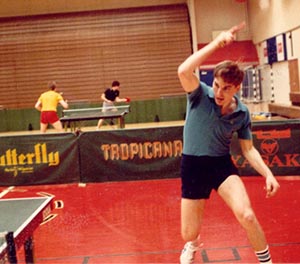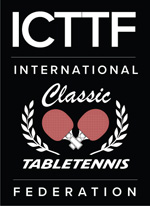Tip of the Week
The Forehand Down-the Line Block and Counterloop.
USA Table Tennis Executive Directors, CEOs, Presidents, Board Chairs, and Editors
Here is the comprehensive list, which I put together for the heck of it. I've published partial lists in the past, but now they're all there!!! I'm in it for my two tenures as editor, totaling 12 years and 71 issues.
Christmas Table Tennis Book Shopping
It's that time of year again - time to do your Xmas shopping, either for some other table tennis player, or for yourself. (Interesting tidbit - I sell almost as many table tennis books in November and December as the rest of the year combined - lots of Christmas shoppers.) Here are some choices.


 Photo by Donna Sakai
Photo by Donna Sakai




